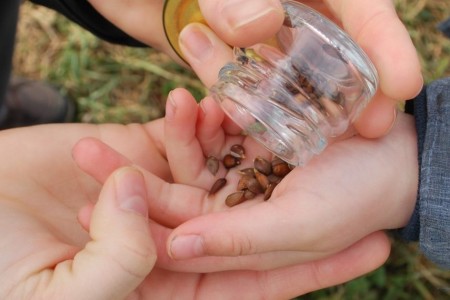Growing the Future of Gardening
We LOVE sharing our passion for gardening and this year we have had the pleasure of helping many of our local schools and growing groups realise the joy and satisfaction of growing their own.

Louise Canfield, our Cultivation Street Ambassador, featured in the Sunday Mirror (Gardening Club with David Domoney – Sunday 11th of August) and talked about the importance of growing food with the younger generation, here is her full interview;
What is your role in the garden centre?
Office Manager, Events Team Member & Cultivation Street Ambassador
How many schools do you work with?
30+
How do you interact with these schools?
In person, via e-mail, telephone and social media and through national campaigns and competitions such as the Cultivation Street Calliope Competition.
How do you teach them about growing vegetables?
We regularly have Children’s activities in-store which encourage growing. We actively support and promote National Children’s Gardening Week, this year we held a free ‘Let’s Get Growing’ activity, making paper pots, sowing runner bean seeds, and making fun plant labels, at the garden centre and over 400 children attended and took part! We support schools by donating seeds and equipment to enable pupils to grow in their school environment and offer growing advice on-site and off-site and cropping guides.
What vegetables do you encourage them to grow?
We encourage giving everything a go, but depending on the age and growing experience we usually suggest starting off with crops that will provide quite quick results with ease, such as cress, spouting seeds, radishes, runner/broad beans, this gets children engaged. Crops such as purple carrots and yellow runner beans are great fun and colourful additions to the vegetable patch. Herbs are great for sensory learning and cooking so a popular choice too.
Do you think teaching the origin of food to children is important?
Definitely! The more children know about where their food comes from the more informed they are to make better decisions when choosing what they eat. Eating locally sourced or seasonal fruit and vegetables means they are fresh and nutrient rich, eating more exotic choices is a great way to educate children about different countries, cultures and climates.
What reaction do you get from the children?
Children’s personalities and confidence are naturally different so the reaction to getting involved can be mixed, some children love getting stuck in and getting their hands dirty others are a lot more reserved, however, the outcome is always positive and the children take a lot of pride in what they have grown and achieved. Although growing and gardening combines many of the academic subjects, science, physical education and culinary skills, the children view it as a fun activity rather than an extra circular activity which always helps to increase their enthusiasm!
What tip would you give to someone wanting to inspire children to grow vegetables?
Nothing is more satisfying than the growing process, sowing, nurturing, and eating your own produce. I think the National Children’s Week’s philosophy; “capture children’s enthusiasm at a time when results are immediate” couldn’t be more accurate. Growing crops at the right time of year and seeing results quickly will ignite their enthusiasm, they will then learn to be more patient in order to be more adventurous with what they grow. Let your young gardener(s) have their own plot or growing space, the responsibility of independent growing is much more exciting! Once they have grown their vegetables get them to think about what they can do with their produce, can they make a meal for all the family to enjoy? Can they take it to school in their packed lunch box? This will make them feel proud of their achievements and want them to continue growing.
What are the benefits of gardening for children?
Gardening offers so many benefits for children. When growing edible crops – it gives them valuable life skills to grow and harvest their own food, can enable them to have a more varied diet, encourages healthier eating and lifestyles, educates them in where their food comes from and promotes sustainability as there is no packaging or food miles. Gardening in general broadens the senses, encourages mindfulness and improves mental well-being as well as being a sociable hobby that gets children outdoors in the fresh air and away from technology. (https://www.drpaulsonline.com/) Gardening is very rewarding, and teaches children that with perseverance, enthusiasm and patience you will get great results!
If you need help with your school garden or growing club please get in touch, we would also suggest signing up to Cultivation Street for expert advice, free resources and great competitions!


